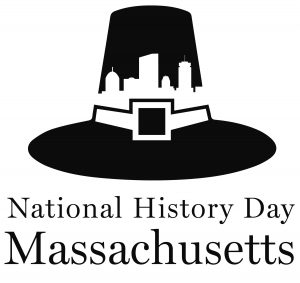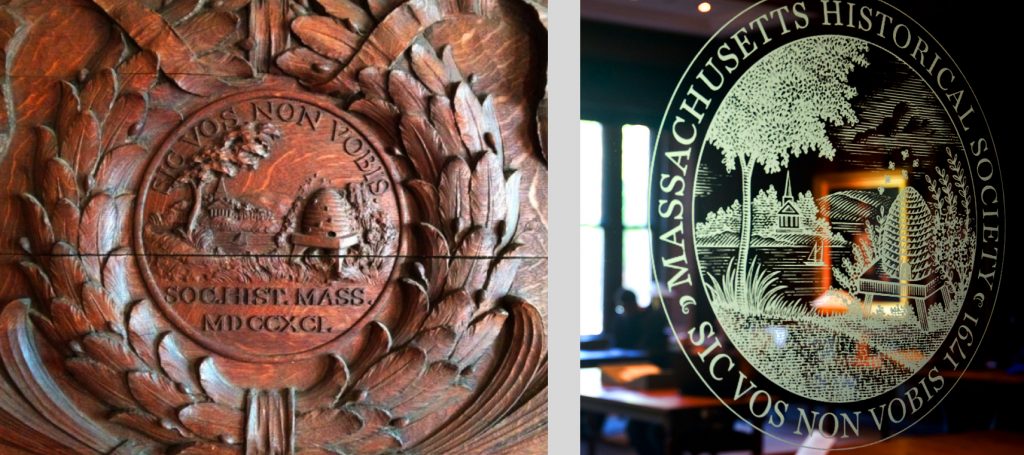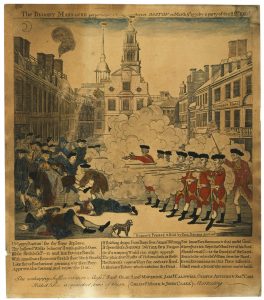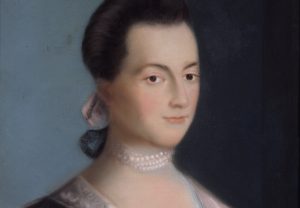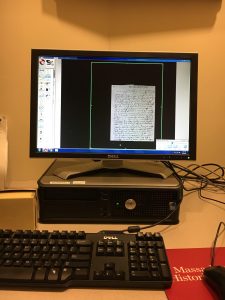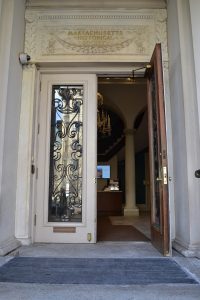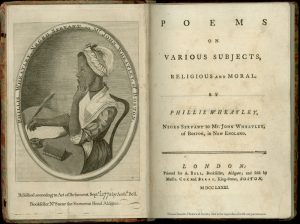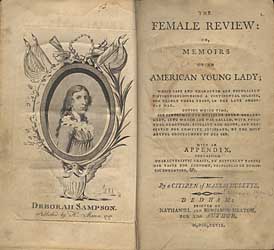by Katy Morris, Research Coordinator & Book Review Editor
We are pleased to announce the fellowship winners for the 2020-2021 academic cycle. Every year, the Research Department at the MHS administers roughly a quarter million dollars in research support to help scholars from all career stages access our remarkable collections. These fellowships range from short-term funding (4-8 weeks) to long-term residency (4 to 12 months).
This incoming cohort of fellows explores an exciting variety of topics. They range from environmental histories of borderlands, placing making, urban planning, and the circulation of goods and animals, to cultural histories of queer art and literature, sacred music, and landscape paintings. Others delve into histories of abolitionism and suffrage, histories of imperialist expansions, migrations, and globalization. Still others are exploring the histories of books, imprints, and manuscripts.
While we cannot welcome these fellows to our doors just yet, our library staff is hard at work helping our fellows access our collections remotely. We are also delighted to host virtual Brown-bag Lunch Programs that showcase their work.
Congratulations to our incoming fellows – we can’t wait to learn more about your work!
MHS Research Fellows, 2020-2021
MHS-NEH Long-Term Fellows
- Kabria Baumgartner, assistant professor, University of New Hampshire, “The Life and Times of Robert Morris: America’s First Human Rights Lawyer”
- Frank Cirillo, post-doc, University of Virginia, “The Abolitionist Civil War: Immediatists and the Fate of the Union”
- Marc-William Palen, senior lecturer, University of Exeter, “Pax Economics: The Economic War for Peace, 1846-1946”
- Amy Watson, post-doc, University of Southern California, “Patriots Before Revolution: The Invention of Party Politics in the Atlantic”
Suzanne & Caleb Loring Fellowship on the Civil War, Its Origins, and Consequences
- Andrew Donnelly, Ph.D. candidate, Harvard University, “Reconstructing Sexuality: The Politics of Sex and Manhood in the Civil War Era”
New England Regional Fellowship Consortium
- Jasmyn Barringer, Ph.D. Candidate, Boston University, “Hunting Haitian Devils: Trans-historical Representation of Caribbean Peoples as Monstrosities”
- Kabria Baumgartner, assistant professor, University of New Hampshire, “The Life and Times of Robert Morris: America’s First Human Rights Lawyer”
- Stephen Berry, associate professor, Simmons University, “Caught Between Sailors and Saints: Pacific Peoples in the Age of American Maritime Expansion”
- Mark Bland, independent scholar, “The World of Simon Waterson, Stationer: Family, Finance and the Control of the Book-Trade in Early Modern England”
- Caylin Carbonell, Ph.D. candidate, William & Mary, “Fraught Labor, Fragile Authority: Households in Motion in Early New England”
- Charlotte Carrington-Farmer, associate professor, Roger Williams University, “Equine Labour: Horses and the Making of New England”
- Nym Cooke, independent scholar, “Inventory of American Sacred Music Imprints and Manuscripts Through 1820”
- Rachel Corbman, visiting assistant professor, Wake Forest University, “Conferencing on the Edge: A Queer History of Feminist Field Formation”
- Jackson Davidow, lecturer, Rhode Island School of Design, “Gay Art and Politics in 1970s Boston”
- Camden Elliott, Ph.D. student, Harvard University, “Environmental Histories of the French and Indian Wars, 1688-1764”
- Hongdeng Gao, Ph.D. candidate, Columbia Univeristy, “Migration, Medicine and Power: How Chinese New Yorkers Gained Better Access to Health Care, 1949-1999”
- Eric Huntley, Lecturer, MIT, “Failing to Make Urban New England: A Spatial History of Planning Failure in Boston, Providence, and Portland”
- Melissa Johnson, adjunct, Mt. Hood Community College, “Open Secrets: Women, Gossip, and Watchfulness in Seventeenth-Century New England”
- Carla Kaplan, professor, Northeastern University, “‘Queen of the Muckrackers’: The Life and Times of Jessica Mitford”
- Cheryl Knott, professor, University of Arizona, “Environmental Projections: How the Limits to Growth Books Changed the Way We Think About the Earth’s Future”
- Rebecca Marisseau, Ph.D. candidate, Brown University, “A Well-Oiled Machine: New Bedford Whale Fishery and the Production of the Early American State”
- Don James McLaughlin, assistant professor, University of Tulsa, “New Edition of Sarah Orne Jewett’s 1885 Novel A Marsh Island”
- Erik Nordbye, Ph.D. Candidate, Harvard University, “The Cost of Free Religion: Religious and Economic Liberties in New England after the Great Awakening”
- Mary Overholt, M.A. student, Yale University “Space Tactics: Radical Feminist Health Centers & Clinical Imaginaries”
- Jerrad Pacatte, Ph.D. candidate, Rutgers University, “‘For Town or Country’: African American Women, Labor, and the Pursuit of Freedom in New England, 1740-1860”
- Allison Pappas, Ph.D. candidate, Brown University, “‘Light as a Recording Agent of the Past’: The Temporal Register in Astronomical Photography at the Harvard College Observatory”
- Patrick Parr, independent scholar, Lakeland University of Japan, “Malcolm Before X”
- Alyssa Peterson, Ph.D. student, University of Texas, Austin, “‘And the Vapours at that time belcht forth from the Earth into the Air’: How Earthquakes Caused Disease in the Long Eighteenth Century”
- Erin Runions, professor, Pomona College, “Fallen Angels and Hell in Proslavery and Abolitionist Discourses, 1830-1865”
- Henry Snow, Ph.D. Candidate, Rutgers University, “The Ends of the Ocean: Power and Change at the Atlantic Dockside, 1740-1840”
- Astrid Tvetenstrand, Ph.D. candidate, Boston University, “Seasons as Verbs: Nineteenth Century Landscape Painting and the Creation of American Second Home Culture”
- Sunny Xiang, assistant professor, Yale University, “Intimate War, Atomic Wear”
- Mimi Yang, professor, Carthage College, “What is Women’s Suffrage Centennial to a “Browner” and “Flatter” America?”
MHS Short-Term Fellows 2019-2020
- Danielle Alesi, Ph.D. candidate, University of Nebraska, Lincoln (Andrew W. Mellon Fellow), “Consuming Empire: Eating and Engaging with Animals in the Americas, 1492-1650”
- Zachary Bennett, visiting assistant professor, Connecticut College (Mary B. Wright Environmental History Fellowship), “Contested Currents: Rivers and the Remaking of New England”
- John Bidwell, curator, Morgan Library & Museum (Malcolm and Mildred Freiberg Fellowship), “The Declaration of Independence: Prints, Broadsides, and Facsimiles”
- Thomas Brown, professor, University of South Carolina (Andrew Oliver Research Fellowship), “Monograph on the Shaw Memorial”
- Stephen Carter, assistant professor, University of Colorado at Colorado Springs (Marc Friedlaender Fellowship), “Adamsian Afterlives: Thinking American Pasts in a Post-American World”
- Dwain Coleman, Ph.D. candidate, University of Iowa (Military Historical Society of Massachusetts Fellowship), “Black Civil War Veterans and the Fight for Community in the Midwest”
- Christian Cuthbert, independent scholar, (Society of Colonial Wars Fellowship), “Preaching and Practice in Inter-colonial Warfare, 1744-48”
- Arlene Diaz, associate professor, Indiana University (Louis Leonard Tucker Alumni Fellowship)
- Nicholas DiPucchio, Ph.D. candidate, Saint Louis University (Andrew W. Mellon Fellow), “American Expansions: Imperial Frustrations and the Evolution of Manifest Destiny, 1775-1845”
- Camden Elliott, Ph.D. student, Harvard University (Society of Colonial Wars Fellowship), “Environmental Histories of the French and Indian Wars, 1688-1764”
- Ashley Garcia, Ph.D. student, University of Texas, Austin (Andrew W. Mellon Fellow), “An American Socialism: The Fourierist Movement and Nineteenth Century American Culture”
- Holly Gruntner, Ph.D. candidate, College of William & Mary (Kenneth and Carol Hills Fellowship in Colonial History), “‘Some People of Skil and Curiosity’: Knowledge and Early American Kitchen Gardens, 1650-1830”
- Joseph Hall, associate professor, Bates College (W.B.H. Dowse Fellowship), “Making Home: Wabanaki and English Claims to Place, 1600-1800”
- Yiyun Huang, Ph.D. candidate University of Tennessee, Knoxville (Andrew W. Mellon Fellow), “The Chinese Origins of Medicinal Tea: Global Cultural Transfer in a Vast Early America”
- Mallory Huard, Ph.D. candidate, Pennsylvania State University (Ruth R. & Alyson R. Miller Fellowships), “America’s Private Empire: Gender and Commercial Imperialism in Nineteenth Century Hawai’i”
- Leslie Leonard, Ph.D candidate, University of Massachusetts, Amherst (Andrew W. Mellon Fellow), “The Burdens and Blessings of Responsibility: Responsibility, Duty, and Community in Nineteenth-Century America”
- Mia Levenson, Ph.D. student, Ph.D. student, Tufts University (Andrew W. Mellon Fellow), “Nineteenth-Century Physicians and the Performance of Popular Anatomy”
- Brian Maxson, associate professor, East Tennessee State University (Andrew W. Mellon Fellow), “The Strange Tale of a Latin Speech, Renaissance Venice, and Nineteenth-Century New England”
- Cody Nager, Ph.D. candidate, City University of New York (Andrew W. Mellon Fellow), “From Different Quarters: Regulating Migration and Naturalization in the Early American Republic, 1783-1815”
- Kristin Olbertson, associate professor, Alma College (W.B.H. Dowse Fellowship), “Credible Women: Gender & Testimony in Eighteenth-Century New England Courts”
- Benjamin Remillard, Ph.D. student, University of New Hampshire (Benjamin F. Stevens Fellowship), “‘In Reduced Circumstances’ Yet Civically Engaged: The Activism of Southern New England’s Revolutionary War Veterans of Color”
- Makiki Reuvers, Ph.D. candidate, University of Pennsylvania (C. Conrad & Elizabeth H. Wright Fellowship), “Bodies of Empire: The Political, Religious, and Corporeal Makings of Subjecthood in Seventeenth-Century New England”
- Hannah Schmidt, Ph.D. student, University of Maine (Society of Colonial Wars Fellowship), “Identities Held Captive: Geography and Forced Migration in the Captivity Narratives of the Colonial Northeast”
- Kaila Schwartz, Ph.D. candidate, College of William & Mary (Kenneth and Carol Hills Fellowship in Colonial History), “Naming New Englanders: Family, Legacy, and Identity, 1620-1850”
- Alina Scott, Ph.D. student, University of Texas, Austin (Andrew W. Mellon Fellow), “A Reason to Petition and Pray: Religion, Citizenship, and Autonomy in Native Petitions, 1800-1850”
- Darcy Stevens, Ph.D. student, University of Maine (Massachusetts Society of the Cincinnati Fellowship), “Conceptions of Neutrality During the American Revolution in the Northeast Borderlands”
- Arleen Tuchman, professor, Vanderbilt University (Andrew W. Mellon Fellow), “History of the Family Disease of Addiction”
- Evan Turiano, Ph.D. candidate, City University of New York (African American Studies Fellowship), “Running Toward Abolition: Fugitive Slaves, Legal Rights, and the Coming of the Civil War”
- Jessica Vander Heide, Ph.D. candidate, Lehigh University (Ruth R. & Alyson R. Miller Fellowship), “Schooling Intimacy: Lessons in Love, Romance, and Sexuality at American Female Academies, 1780-1870”
- Cassandra Jane Werking, Ph.D. candidate, University of Kentucky (Louis Leonard Tucker Alumni Fellowship), “Is My North Star Also Your North Star? How the Borderlands Between Canada and the United States Shaped the American Civil War”


